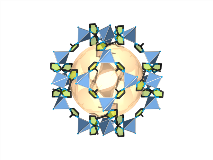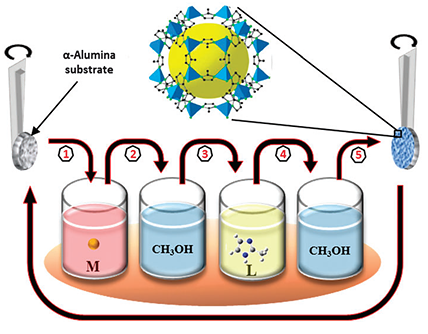

The research activities developed within Professor Eddaoudi's group mainly aimed at designing new functional solid-state materials for targeting specific applications, namely, gas storage-separation, catalysis, chemical sensing. Accordingly, Prof. Eddaoudi has settled different powerful strategies to design made-to-order Metal Organic Framework (MOF) materials to address some of challenging and enduring societal issues.


Our research group focuses on the development of novel methodologies to design, discovery and development of nanoporous materials, and to build them into hierarchical structures and complex forms for wide ranges of applications including bio/gas separations, adsorbents, membranes and selective catalysts. We are also fabricating thin films and of porous materials such as metal organic frameworks (MOF), and zeolite like metal-organic framework (ZMOFs) to use them as membranes for high resolution gas separations.
In-Situ Crystallization
This method allows to grow thick thin MOF layers on different substrates. The fabrication of MOF thin films is based on the immersion of a substrate like alumina in the solution of mixed ligand and metal ions at the reaction conditions. The resulting thin film is composed of intergrowth crystals, which are homogenously distributed but not highly oriented.
Layer-by-layer method
This layer-by-layer process allows to grow highly oriented ultrathin MOF layers with well-defined thicknesses. The fabrication of MOF thin films is based on the immersion of a functionalized substrate alternatively in the solution of the metal ions and the ligand. The resulting MOFs thin films are homogenous and exhibit thicknesses proportional to the number of immersion cycles.